If it's one thing surfers have in common, its our need to find warmer waters during the winter, and this spring break is no exception! From the mythic waves of the Mentawai Islands, to the beach-breaks of Mexico, ask any surfer and they're bound to tell you of their dream surf-destination. During Spring Break, you best believe that we are all dreaming about heading south to spend a week surfing some of the best waves. With the allure of perfect waves, warm water, and palm-fringed beaches, it might not occur to you think of the impacts your vacation could have.
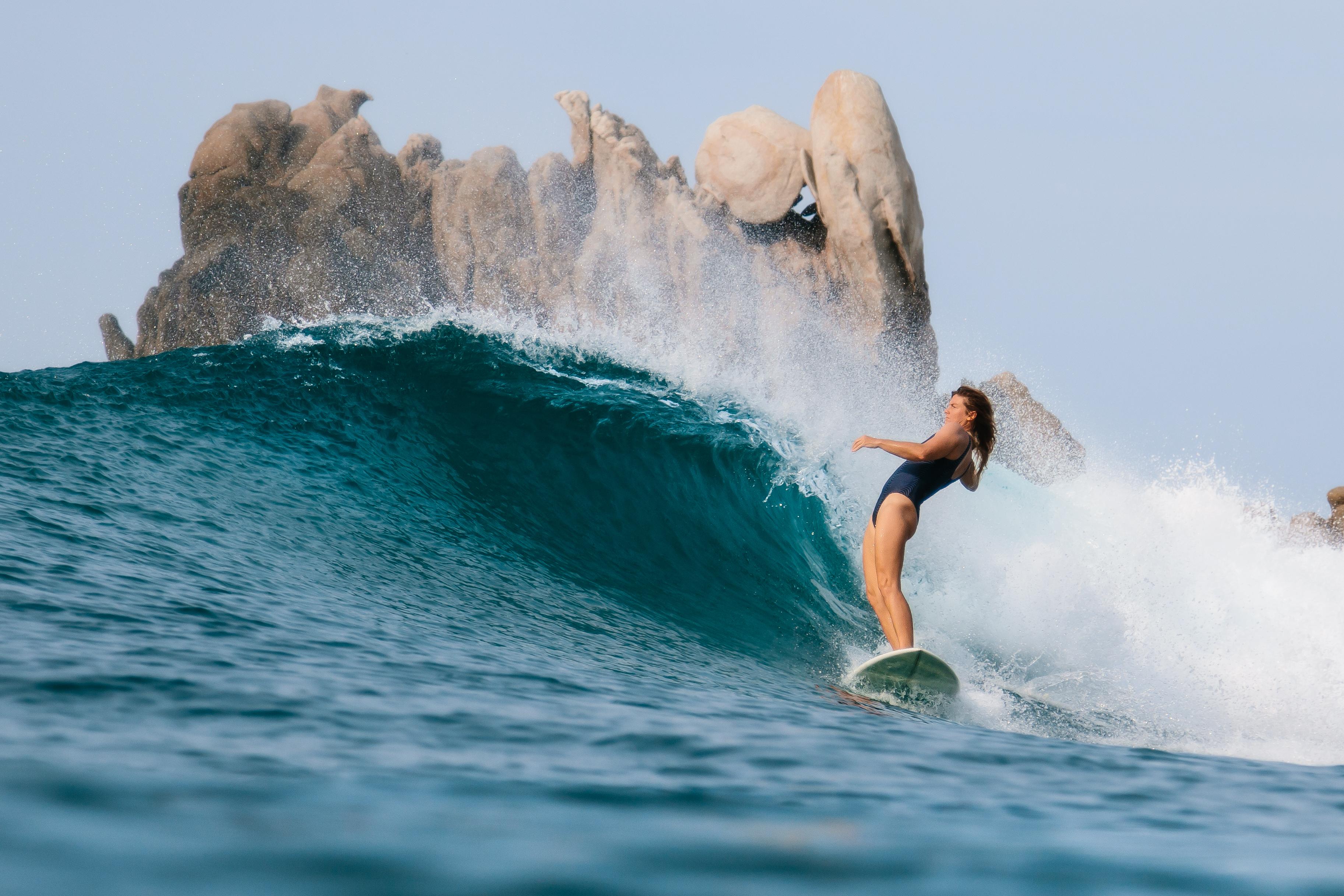
{Leah Dawson in Mexico in the Naomi suit shot by Christina Funk}
As surfing becomes more popular, communities with surfable coastlines the world over have been experiencing rapid booms in tourism that they weren't necessarily prepared for, which has implications socially, economically, and environmentally.
No matter where your travels may take you, we ask you to consider the effect your activities and purchases are having and follow these simple guidelines to do your best to not only be a respectful surf tourist, but to try to enhance the communities you're visiting.

1. Spend your money in the local economy
According to this study from 2021, conducted to establish a pre-Covid19 baseline for surf tourism, surfers will spend between $1,000 and $5,000 USD on their international surf trips, which most often last up to 3 weeks.
With all this money pouring into countries with popular surf destinations, it can be surprising to learn that that money doesn't always make it into the pockets of the local people from those communities, nor is it always used to benefit them.
One factor that may contribute to this is the influx of foreign surfers ,mostly from the Global North, who realize that they can stretch their dollars a lot farther in wave-rich places like Costa Rica or Nicaragua. These foreigners have been buying property and opening businesses, effectively reshaping entire communities that now cater to the demands of surf-focused visitors.
While this might provide jobs to locals and open up other tourism-related opportunities, it can divert money away from locally owned businesses, strain infrastructure, and drive up living costs.
So what to do?
On the individual level, as a surf-tourist, please be mindful of where and how you choose to spend your money when you're traveling to these places. While the polished Airbnb's and swanky foreign-owned hotels might be appealing, try to look for accomodation that is owned by local people from that community - often times you'll be getting a better, more authentic experience.
Support the locally owned restaurants, street food carts, and businesses.
Not only does this support the local people, it might incentivize other locals to try to start their own business,too. And when the local people are in control, the money is more likely to be reinvested into that community to the benefit of everyone.
Gabby Castillo, a surfer and business owner from El Paredón, Guatemala says,
"I started a coffee shop with good coffee and the best açaí and smoothie bowls for after surfing. I never had a business like this before so it was a challenge to make it by my myself as a woman in a little town of old school habits. It has been a great experience, a lot of learning and trying to inspire other women to know that they can accomplish whatever they want if they put their minds to it."
Castillo welcomes the growth that surfing has brought to her once sleepy town and simply suggests that visitors "Just need to enjoy, respect and support the place."
2. Help protect the local environment
As surfers, we should be especially attuned to how fragile coastal eco-systems can be. Be extra conscious of your individual environmental impact when traveling and take extra steps to ensure you are treading as lightly as possible. The easiest and obvious ways to do this, like using reusable water bottles and cleaning up your trash at the beach, are a given, but consider other ways your presence could have negative environmental impacts and act accordingly. Try to leave natural places as you found them and resist the urge to gather rocks, shells, and corals to take home with you - admire them and leave them there. When posting to social media geo-tag responsibly or avoid it all together, especially in places that have more vulnerable or fragile eco systems. Respect local wildlife and abide by common-sense rules when you see any, like not touching, chasing, or harassing them.Finally, don't forget to use only reef-safe sunscreen like Avasol or Manda.

3. Proper surf etiquette is essential
It's important to be a mindful and conscientious surfer at all times, but especially when visiting spots away from your local break. If you're newer to surfing, you'll likely be surfing breaks geared towards beginners, so the rules might be more relaxed. But, as you advance it's important to surf at spots within your skill set so you do not put yourself or anyone else in danger.
Seea ambassador Rosie Jaffurs says, "Don’t be an oblivious surfer, be a safe surfer…One needs to be paying attention to all things going on around them, caring for everyone out there and not just yourself."
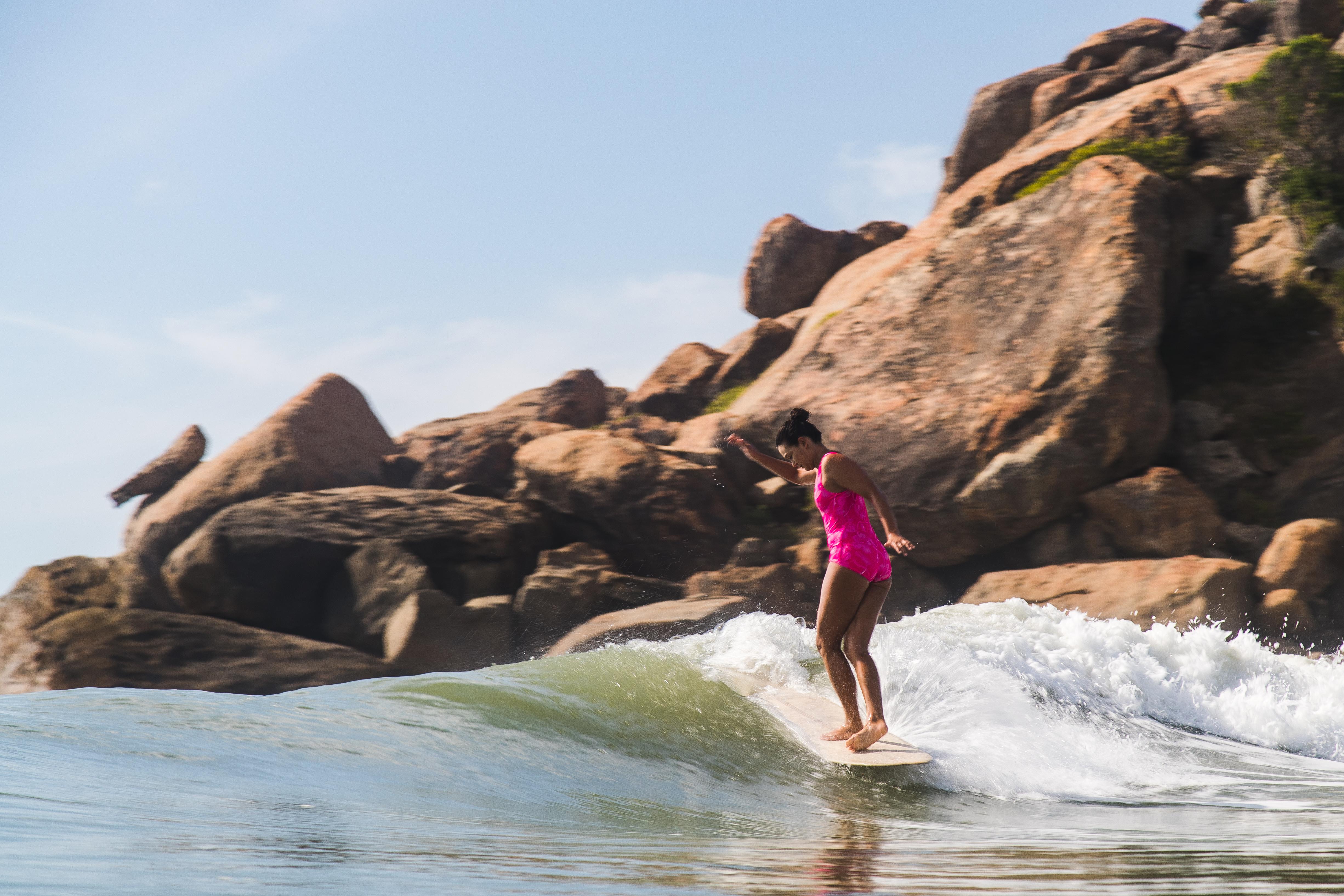
{Rosie Jaffurs in the Tofino shot by Mike Ito}
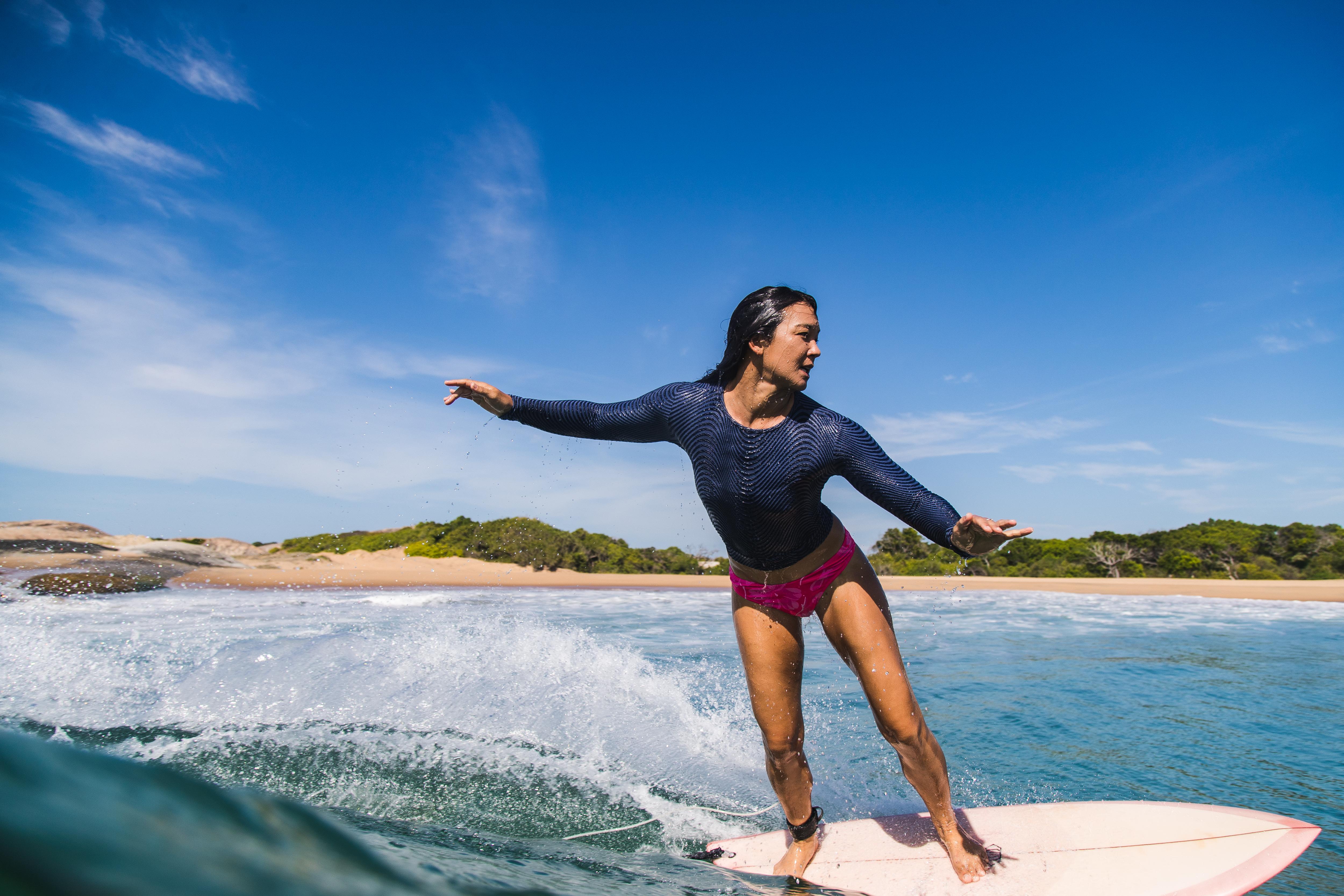
{Rosie Jaffurs in the Palomar rash guard shot by Lost Not Found Mag}
Research the spots you'll be surfing ahead of time so you're aware of the conditions, skill level, and crowd factor.
Seea ambassador Leah Dawson has great advice and some general guidelines we can all abide by. She says, “As a rule of thumb, locals always have priority! It’s always important to keep in mind that local surfers are consistently sharing their waves with visitors so showing abundant respect to local surfers goes a long way. In order to identify who is a local, I like to watch the lineup for a while, and when Ipaddle out, engage with people in the lineup, say hello, acknowledge each other, and then wait patiently to get into the rotation for the waves. In most places, we must show respect to get respect! "
4. Learn words and phrases in the local language
It might be intimidating or even embarrassing to even attempt speaking a language you are unfamiliar with, but this simple gesture is a sign of respect and can go a long way when interacting with locals. With Google translate at our fingertips, there's really no excuse to not learn a few basic words and phrases to have polite interactions when you're visiting a foreign country where your language is not the native tongue.
5. Respect local customs and learn about the local culture
Understand and respect the local norms and customs when you're traveling. The fact that you're traveling for surf doesn't necessarily mean it's appropriate to wear your swimsuit or boardshorts off the sand. If it's customary to cover up - do so.
Make an effort to learn about the culture, history, and other aspects of the place you're visiting - particularly with respect to the original inhabitants. Who are the indigenous people from there? How have they traditionally cared for their land and how has globalization affected them?
Explore local markets and learn about the art or crafts that might be local to that area.
What are traditional dishes? Give one a try when dining at a local establishment.
Some of these pieces of advice probably seem very obvious and straightforward, but it's worth reminding ourselves that we are visitors in other people's homes. Have a safe, and respectful trip!
If you're planning a trip this spring break, do research ahead of time. Get to know the place and its people. Educate yourself, and it will make the trip better for you and the local community.
More Surf Trip Tips!
For more tips and essentials check out our Two-In-One Traveler collection.
Need to pack your surf board bag? Check out our blog post on How to Pack Your Surfboard Bag.






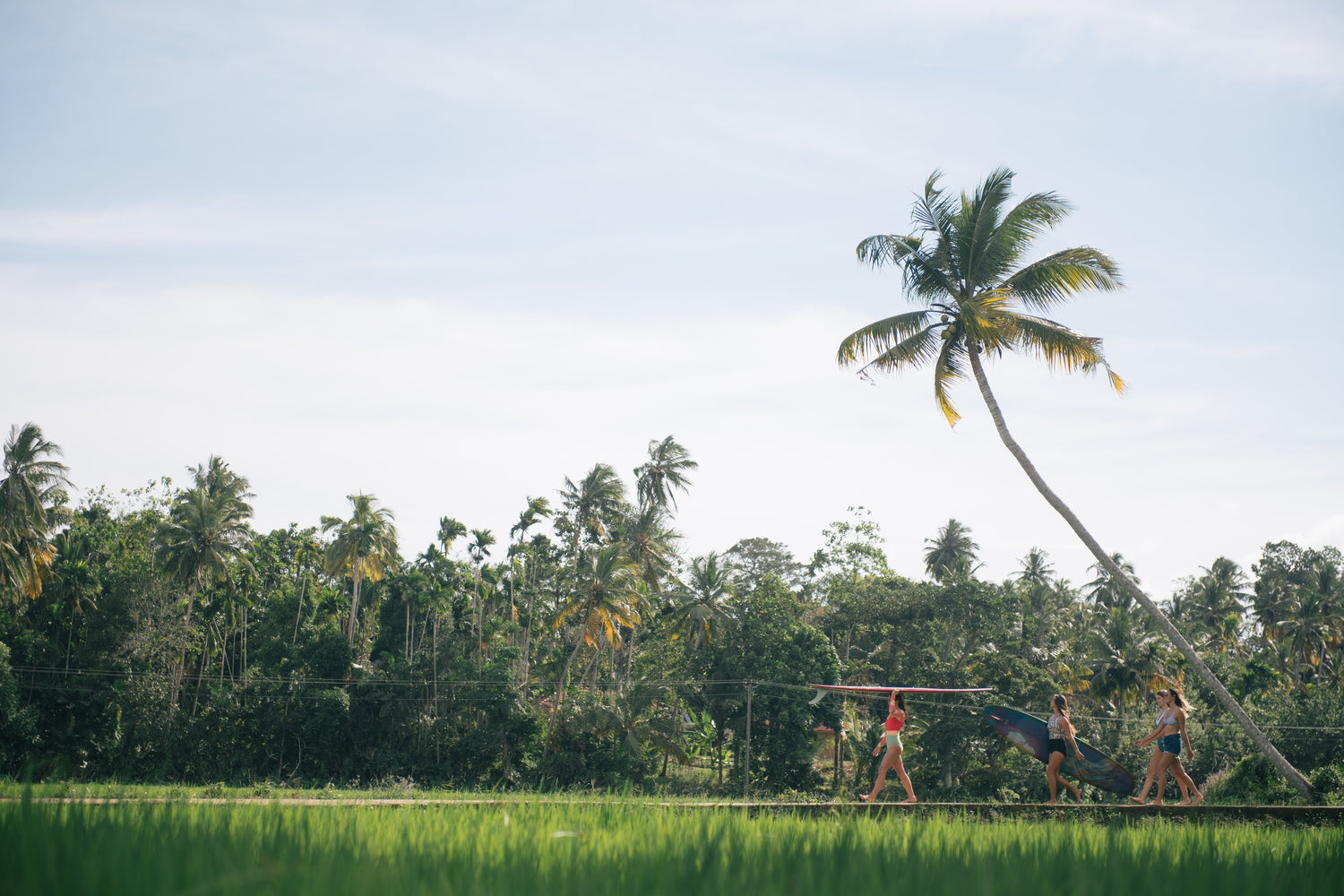
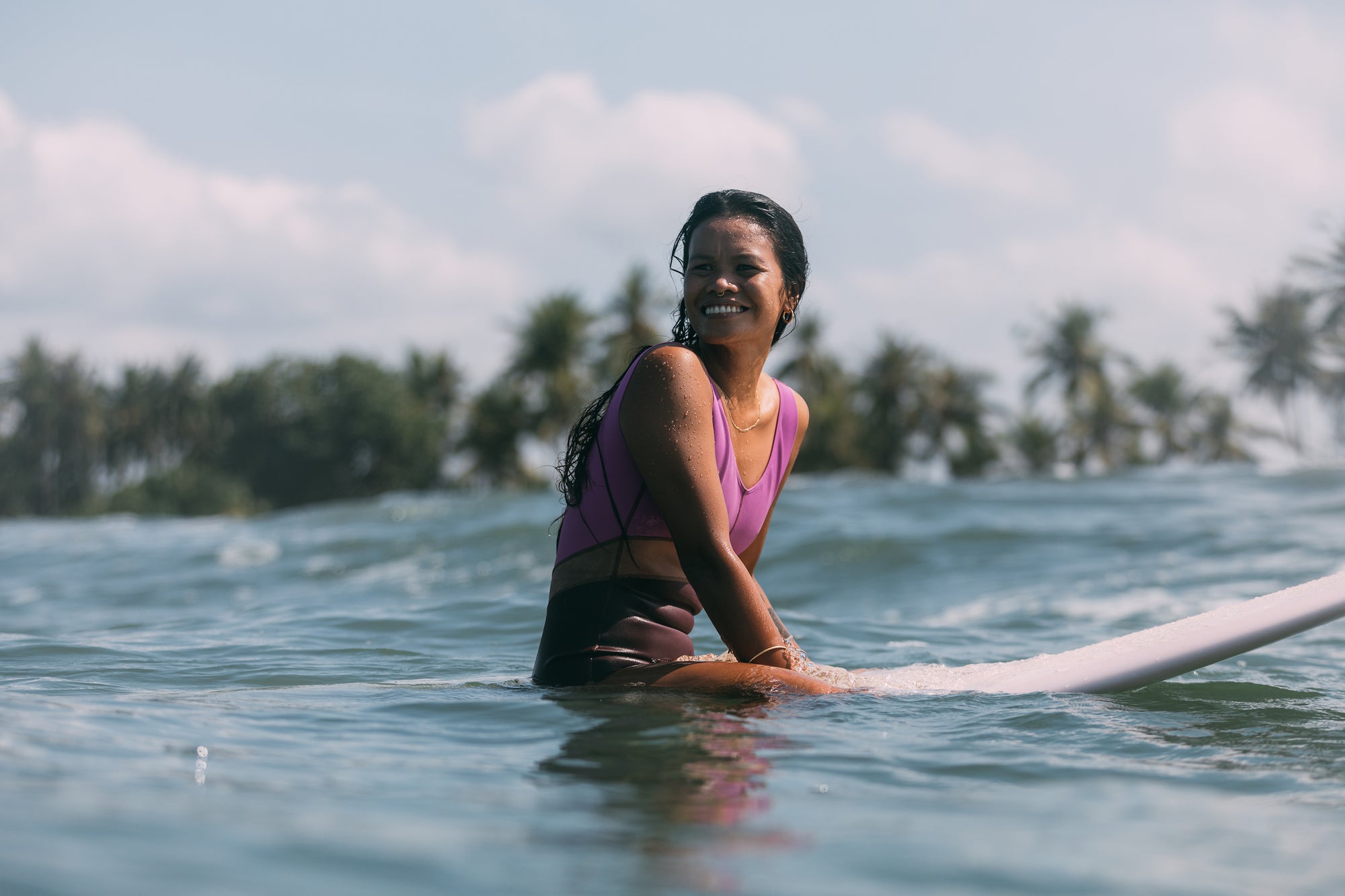

1 comment
Annie
Great post! All important things to remember whenever traveling.
Great post! All important things to remember whenever traveling.